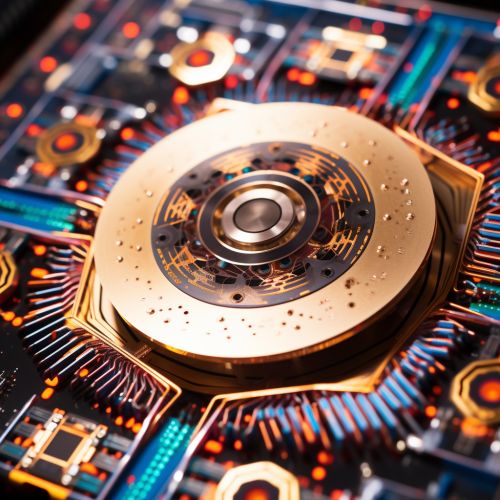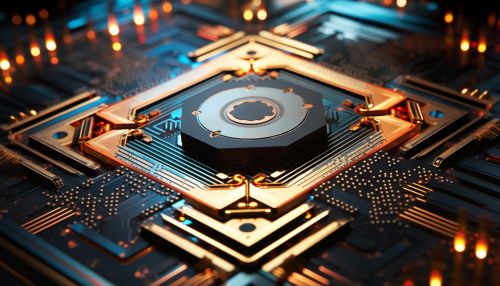Quantum noise
Introduction
Quantum noise refers to the uncertainty inherent in the properties of a quantum system due to the principles of quantum mechanics. This noise is a fundamental aspect of quantum systems and is not due to any external influences or technical imperfections. Quantum noise has significant implications in various fields, including quantum computing, quantum cryptography, and quantum optics.


Quantum Mechanics and Noise
In quantum mechanics, the state of a system is described by a wave function, which provides a probability distribution for the outcomes of measurements of properties such as position and momentum. Due to the Heisenberg Uncertainty Principle, it is impossible to simultaneously know the exact values of certain pairs of properties, such as position and momentum, or energy and time. This inherent uncertainty gives rise to what is referred to as quantum noise.
Quantum noise differs from classical noise, which arises from random fluctuations in physical quantities due to external influences or technical imperfections. Quantum noise is an intrinsic property of quantum systems and cannot be reduced or eliminated.
Quantum Noise in Quantum Computing
Quantum noise plays a significant role in the field of quantum computing. Quantum computers utilize quantum bits, or qubits, which can exist in a superposition of states, unlike classical bits that can only be in one state at a time. This superposition allows quantum computers to perform complex calculations much more efficiently than classical computers. However, quantum noise can cause qubits to lose their quantum state, a process known as quantum decoherence, which is a major challenge in the development of practical quantum computers.
Quantum Noise in Quantum Cryptography
In quantum cryptography, quantum noise is used to ensure the security of information transmission. The most well-known application of quantum cryptography is quantum key distribution (QKD), which allows two parties to share a secret key that can be used to encrypt and decrypt messages. Any attempt to eavesdrop on the key exchange will introduce additional quantum noise, which can be detected by the communicating parties, thus ensuring the security of the transmission.
Quantum Noise in Quantum Optics
Quantum optics is another field where quantum noise plays a crucial role. Quantum optics deals with the interaction of light with matter at the quantum level. One of the key phenomena in quantum optics is the quantum fluctuation of the electromagnetic field, which is a manifestation of quantum noise. These fluctuations give rise to the photon antibunching effect, which is a key feature of single-photon sources, an essential component in quantum information technologies.
Conclusion
Quantum noise, while a challenge in certain areas such as quantum computing, also provides opportunities for new technologies in fields like quantum cryptography. As our understanding of quantum noise continues to deepen, it will undoubtedly play a crucial role in the future development of quantum technologies.
